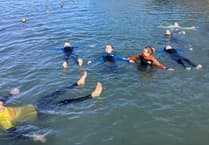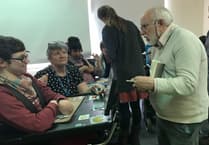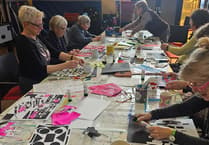A PRIMARY school forced to close yesterday due to an outbreak of Strep A among pupils and staff has reopened following a deep-clean.
Kingsbridge Community Primary School shut its doors yesterday (Tuesday December 13) after 40 per cent of its pupils were unwell and off school.
Assistant headteacher Miranda Martyn said the school has now reopened and will work closely with public health experts to monitor the situation.
“We’re open,” Ms Martyn said. “We’re following all the public health guidance and importantly we’ve got children and staff in who are ready to resume learning.
“We’ll continue to work closely with public health experts and keep families informed as we move through this period.”
Devon’s director of public health, Steve Brown said UK Health Security Agency agency are advising the school.
“We’re aware that a number of pupils and staff are off with illnesses currently.
“The UKHSA (UK Health Security Agency) is in touch with the school regarding public health advice for students and staff,” he said.
The UK has experienced a seasonal surge of Strep A-related illnesses and deaths this winter, with infection rates at their highest levels since 2018.
Group A streptococcus, known as Strep A, is a common bacterium. Lots of people carry it in their throats and on their skin and it doesn’t always result in illness.
Strep A is spread by close contact with an infected person and can be passed on through coughs and sneezes or from a wound.
Some people can have the bacteria present in their body without feeling unwell or showing any symptoms of infections and while they can pass it on, the risk of spread is much greater when a person is unwell.
However, Strep A does cause a number of infections, some mild and some more serious.
Milder infections caused by Strep A include impetigo, cellulitis and pharyngitis. These can be easily treated with antibiotics.
But Strep A can cause more serious illnesses including scarlet fever, which mostly affects young children and, again, needs antibiotics.
Scarlet fever causes a rash and flu-like symptoms, including a temperature, sore throat and swollen neck glands.
On darker skin the rash can be more difficult to detect visually but will have a sandpapery feel.
Someone who has scarlet fever may have what doctors call a strawberry tongue – because its appearance looks a bit like a strawberry.
Very rarely Strep A can also cause something called invasive group A streptococcal infection, or iGAS. This can be deadly.
Invasive disease happens when the bacteria get past your body’s immune defences, which can happenwhen you are already ill or are on treatments, such as some cancer therapies, that affect your immune system.
Warning signs of invasive disease include:
* fever (a high temperature above 38C)
* severe muscle aches.
Urgent, early medical help is essential.
The UK HSA advises: “Anyone with high fever, severe muscle aches, pain in one area of the body and unexplained vomiting or diarrhoea should call NHS 111 and seek medical help immediately.
“As a parent if you feel that your child seems seriously unwell, you should trust your own judgement.”
Contact NHS 11 or your GP if:
* your child is getting worse
* your child is feeding or eating much less than normally
* your child has had a dry nappy for 12 hours or more or shows other signs of dehydration
* your baby is under 3 months and has a temperature of 38C, or is 3 to 6 months and has a temperature of 39C or higher
* your baby feels hotter than usual when you touch their back or chest, or feels sweaty
* your child is very tired or irritable.
Call 999 or go to A&E if:
* your child is having difficulty breathing
* there are pauses when your child breathes
* you child’s skin, tongue or lips are blue
* your child is floppy and will not wake up or stay awake.
Mr Brown outline a series of simple measures that can be taken to reduce the risk and spread of the infection.
He said: “To help reduce the risk and spread of infection we advise people to follow basic good hand and respiratory hygiene measures:
* Wash your hands regularly using soap and warm water for 20 seconds;
* use a tissue to catch coughs and sneezes and to discard of the tissue in the bin immediately;
* not sharing eating utensils, clothes, bedding and towels;
* and avoiding close contact with others if you are feeling unwell.”




